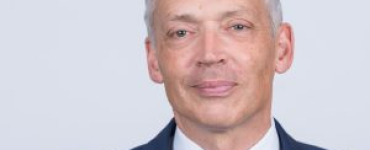As of March 2024, Andreas Hinterberger, Senior Manager Governmental Relations and Public Policy Country Lead Germany, Switzerland and Austria at Uber, will head the Mobility Competence Group at the eco Association together with Giovanni Coppa from WOBCOM. We talked to him about digital transformation of the mobility sector and his new role as Mobility Competence Group Leader.
What are your personal motivations and visions for the future of mobility?
Andreas Hinterberger: The future of mobility is electric, shared and autonomous. This development has been manifesting itself right before our eyes for several years now: the proportion of low-emission vehicles on the roads is steadily increasing, electric forms of mobility are becoming visible everywhere, and more and more people no longer own their own car. I very much welcome this! Ultimately, this trend will encompass all forms of mobility, from cars to rental cars, e-scooters and public transport!
What challenges and opportunities does digital transformation present for the mobility sector?
Andreas Hinterberger: Digitalisation helps us to utilise existing physical resources more efficiently. Thanks to apps, supply and demand can be brought together at the touch of a button. This helps to sustainably reduce material and space consumption and opens up additional sales opportunities for local service providers. Incidentally, this does not only apply to city centres, but also to rural and suburban areas, where digital mobility platforms also help to increase the compatibility of different modes of transport – for example, by providing solutions for the so-called first and last mile between public transportation stations and residential areas.
In your opinion, what measures and incentives are necessary to accelerate the mobility transition?
Andreas Hinterberger: As a first step, a lot can be achieved if existing false incentives or outdated regulations are subjected to a critical review. In the mobility sector in particular, many service providers are still subject to outdated regulations. Just one example: the requirement for a rental car to return to its operating base after every completed trip slows down electrification in the industry, thus causing climate damage and also hindering the economic productivity of rental cars.
What topics would you personally like to drive forward as the new Mobility Competence Group Leader at the eco Association?
Andreas Hinterberger: The best solutions are always developed in dialogue among all involved stakeholders. To this end, eco offers us the best starting conditions. The eco member companies have the necessary know-how and a keen interest in exchanging ideas. We also want to create a ripple effect that motivates new members to get involved.
Thank you very much for the interview, Mr. Hinterberger.




